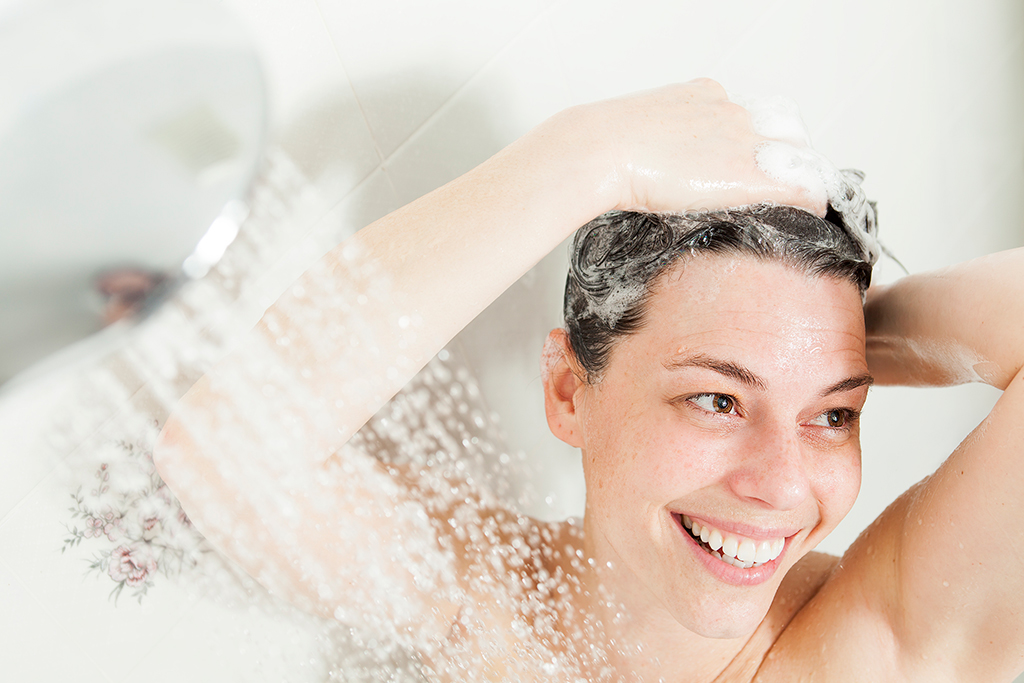
One of the frustrating realities of life is that sometimes the things that give us the most pleasure are the things that aren’t good for us. If you have a sweet tooth, then you are familiar with this concept. As wonderful as pies, cakes and cookies are, they certainly can have a detrimental effect on your health, causing you to gain weight and have difficulties with cholesterol levels and blood pressure.
A similar argument can be made against long, hot showers and baths. While relaxing in a hot bath may help you fall asleep in the evening, it may have detrimental effects that you’re not even aware of. The same can be said for a hot shower after spending time outdoors on a snowy day. All of that heat feels wonderful. It loosens up your joints and takes the shivers away. Unfortunately, it also can be harmful to your skin.
Your skin is an amazing part of your body. It protects you from the elements and even helps to control your body temperature. That is, it’s able to do these things when you take good care of it. When you subject it to a long, hot shower or bath on a regular basis, you take away some of these abilities. Taking a too-hot shower is a bit like getting a sunburn. Your skin gets red and inflamed. It may even start to get itchy and peel.
That’s because the hot shower removes many essential elements from your skin. It strips away the natural oils and proteins that your skin requires to keep it healthy, strong and supple. When your skin is too dry, it is more prone to injury and infection. Eventually, your skin may overcompensate for the condition by producing even more oil, which can lead to further, more complicated problems.
Your skin is made of up three layers. The subcutis and the dermis are important, but it’s the outermost layer, the epidermis, that really gets damaged when your showers and baths are too hot. The skin cells in the epidermis are packed with keratin, which helps your skin to retain moisture. Your epidermis is also covered with a thin layer of oil to add protection and retain even more moisture. However, when that outer layer gets attacked with hot water and soap, the oil melts away and the epidermis is left exposed.
Couple that long, hot shower with the cold winter air and you have a recipe for incredibly dry, itchy skin. Peeling, cracking and bleeding may soon follow if you don’t take immediate steps. The good news is that it is within your power to change this situation. You may not even have to make any major lifestyle changes.
Start by lowering the temperature of the water in your showers. You may want to adjust the thermostat on your water heater to keep it at no higher than 120 degrees. Don’t let the water temperature of your showers and baths creep up to more than lukewarm in order to protect your skin. Moreover, keep your showers and baths short. No more than 10 minutes is a good rule of thumb. In fact, you may want to avoid baths entirely since these tend to dry out your skin even more.
You might also consider using soap only on areas where you sweat or skipping showers at least one day a week. Look for a gentle cleanser that has a moisturizer built into it so that your skin stays hydrated. Resist rubbing your skin dry with a towel. Instead, use a gentle, patting motion, and then be ready to moisturize immediately. If using these tips doesn’t start to reverse the problem, then it’s time to make an appointment with a board-certified dermatologist.
A hot shower may feel like a treat for a few minutes, but it’s actually very damaging to the skin. By shortening showers, lowering the water temperature and making moisturizer a habit, it’s generally possible to start healing that damage. If these measures don’t seem to be working, arrange to speak with a dermatologist to check for conditions like psoriasis or dermatitis.
Contact the experts at Shelby Dermatology or Aesthetic Dermatology to learn more.
